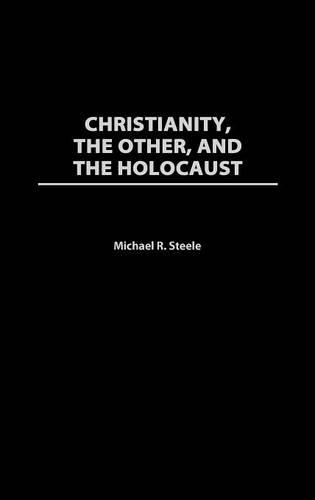
Christianity, The Other, and The Holocaust
(Hardback)
Publishing Details
Christianity, The Other, and The Holocaust
By (Author) Michael R. Steele
Bloomsbury Publishing PLC
Praeger Publishers Inc
28th February 2003
United States
Classifications
General
Non Fiction
Theology
261.2
Physical Properties
Hardback
200
Width 156mm, Height 235mm
425g
Description
According to the author, Christianity offers a powerful system of rewards and incentives to create cultural uniformity. Those who do not join in this cultural uniformity become anathematized, oppressed, marginalized, and ultimately removed from the Christian circle of moral obligation. Using culture studies as a framework for analysis, Steele investigates the ways in which Christianity created cultural conditions based on a theology of violence and the use of sacred violence to foster behaviors that would lead to the involvement of millions of perpetrators and bystanders during the many instances of extreme violence used against the Other over the centuries. As the original Disconfirming Other in the Christian cultural world, Jews often served as the primary target. Thus, there was a system of definitions, rewards, incentives, and victims already in place when the Nazis came to power. Calling for a re-evaluation of the cultural practices and values that have developed within Christianity over time, this important new book helps account for the phenomenon of the Nazi perpetrators and bystanders during the Holocaust. Framing the Holocaust as a late but logical development in a long series of violent responses by Christianity to the Otherthose who stand outside the Christian world, either by geographical accident, religious tradition, or some other factorthe author attempts to show how the Holocaust, while not a specifically Christian event, was nevertheless sanctioned and conditioned by other events in the history of Christianity. Using culture studies to frame his analysis, Steele focuses on historical antecedents that help account for the apathy of bystanders and point to the preexistence of a moral framework supporting and empowering the perpetrators of the Holocaust. This unique perspective concludes that the Nazis invented almost nothing with regard to the Shoah, and that, instead, a long-standing insistence on cultural hegemony played a much bigger role in the attempted destruction of the Jewish community.
Reviews
"Adopting a post-modernist, cultural studies approach, Steele runs through a litany of abuses, from the Roman embrace of Christianity under Constantine through the Crusades, the Inquisition, the conquest of the New World, and the development of New World slavery. In all cases, as he rightly notes, Christian theologians and church leaders justified violence against the victims. In Steele's view, a theology of sacral violence against "the other" became a dominant feature of the Christian tradition. He thereby suggests a fundamental connection between the Christian tradition and Nazi German behavior, a connection by which the murderers felt justified in their deeds and the consciences of bystanders were soothed. Not everyone will accept all of the linkages drawn by Michael Steele. It is important for all, however, to be reminded how easily cultures in the Western Christian past learned to rationalize violence and/or failed to recognize its existence."-Robert P. Ericksen Pacific Lutheran University
"Michael Steele has written a devastating critique of Christianity that will haunt its readers with its accounts of human depravity, but also force all of us to a higher level of moral accountability and conscience."-Susannah Heschel Eli Black Associate Professor of Jewish Studies Chair, Jewish Studies Program Dartmouth College
In this passionate critique of Christianity, Steele argues that slavery, the annihilation of Native Americans and their cultures, and antisemitism--especially as expressed in the Inquisition and the Holocaust--are natural products of a comprehensive Western culture....may help readers to critically examine the myriad ways Christianity has been used to bolster Western arrogance and justify inhuman thoughts and actions....Upper-level undergraduates through faculty.-Choice
"In this passionate critique of Christianity, Steele argues that slavery, the annihilation of Native Americans and their cultures, and antisemitism--especially as expressed in the Inquisition and the Holocaust--are natural products of a comprehensive Western culture....may help readers to critically examine the myriad ways Christianity has been used to bolster Western arrogance and justify inhuman thoughts and actions....Upper-level undergraduates through faculty."-Choice
Author Bio
MICHAEL R. STEELE is Distinguished Professor of English at Pacific University. He has taught there, devoting much of his time to teaching Holocaust Literature, since 1975. He has served as the president and executive director of the Oregon Holocaust Resource Center and currently serves as the director of Holocaust Education at Pacific University. He is the author of Christianity, Tragedy, and the Holocaust (Greenwood, 1995).
